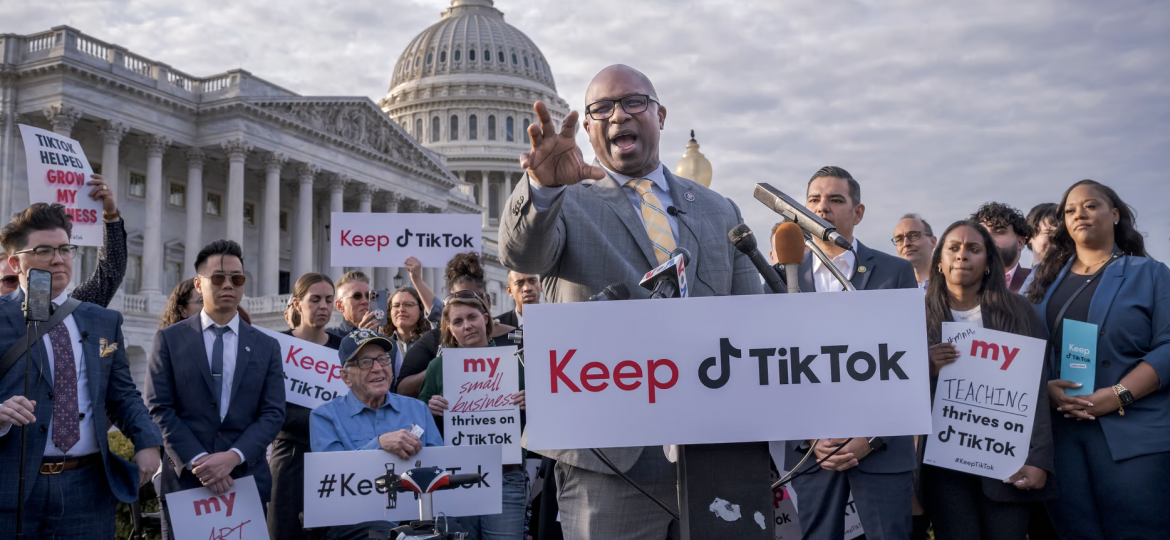
On March 13th, 2024, the United States House of Representatives passed a bill that could potentially result in the nationwide banning of TikTok. Before delving into the implications of the bill, let’s discuss the context surrounding the app and the ongoing developments in Washington D.C.
TikTok is owned by ByteDance, a Chinese entertainment company, and U.S. lawmakers believe that the company is strongly influenced by the politics of the Chinese government and the Chinese Communist Party. Due to this fact, lawmakers are afraid that the Chinese government could be granted access to the data of TikTok’s consumers in the U.S. whenever it wants. The House of Representatives offered TikTok a choice: separate from ByteDance or be banned in the United States. This choice, the bill, was passed through a 352-65 vote and will have to go to the Senate for it to become law. This move is viewed as a measure to safeguard America’s national security, but it also targets a platform hugely popular among millions of users, particularly younger demographics, just months ahead of an election. The Senate is expected to reach a decision on the matter within the next six months.
Jose Luis Magana/AP
TikTok’s unique algorithm, which collects extensive user data to curate our highly personalized “For You Page” has been a key feature in contributing to both its immense popularity and its perceived dangers. By analyzing user preferences and interactions, the algorithm tailors content recommendations with remarkable precision, ensuring that users are continually exposed to engaging videos. This highly curated feed not only enhances user satisfaction and retention but also fuels virality, as content creators have the opportunity to reach broader audiences based on the algorithm’s recommendations.
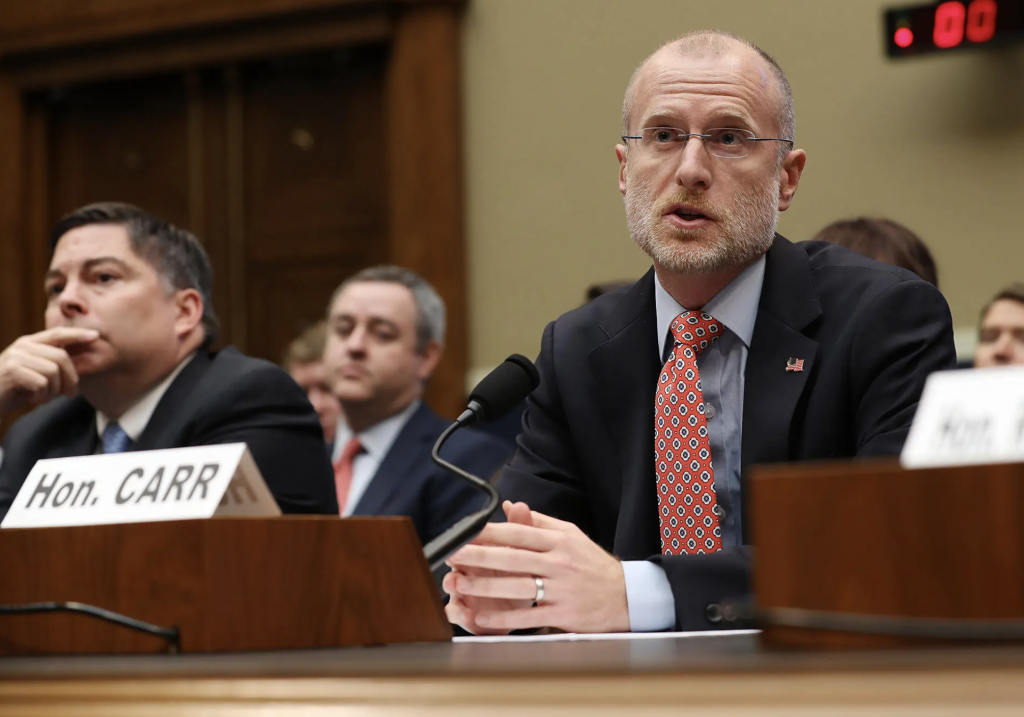
On the flip side, the perceived threat of TikTok stems primarily from concerns surrounding data privacy, national security, and the potential for foreign influence. With its incomparable algorithm, TikTok does collect user data, including personal information and behavioral patterns, raising fears of the exploitation of such data by foreign entities. Furthermore, TikTok’s unparalleled reach and influence among younger demographics have sparked worries about its role in shaping public opinion, disseminating propaganda, or facilitating covert information operations. In other words, what makes TikTok so extraordinary is what might be its downfall.
The potential loss of TikTok could have significant implications not just for users, but for digital marketing strategies. With over 170 million American users, TikTok has become a central channel for marketing and influencer culture. A ban would necessitate a critical shift in marketing tactics, forcing businesses to adapt and redirect their efforts to other platforms such as Instagram, YouTube, or Snapchat. However, this transition could prove challenging as these platforms lack TikTok’s robust algorithm for content promotion. Without this algorithmic support that allows for non-followers to view targeted and curated content, businesses may struggle to attract new customers, relying primarily on existing fan bases for engagement. Furthermore, influencers who have leveraged TikTok to cultivate their personal brand may face disruptions, including the dissolution of brand partnerships and interruptions in revenue streams.
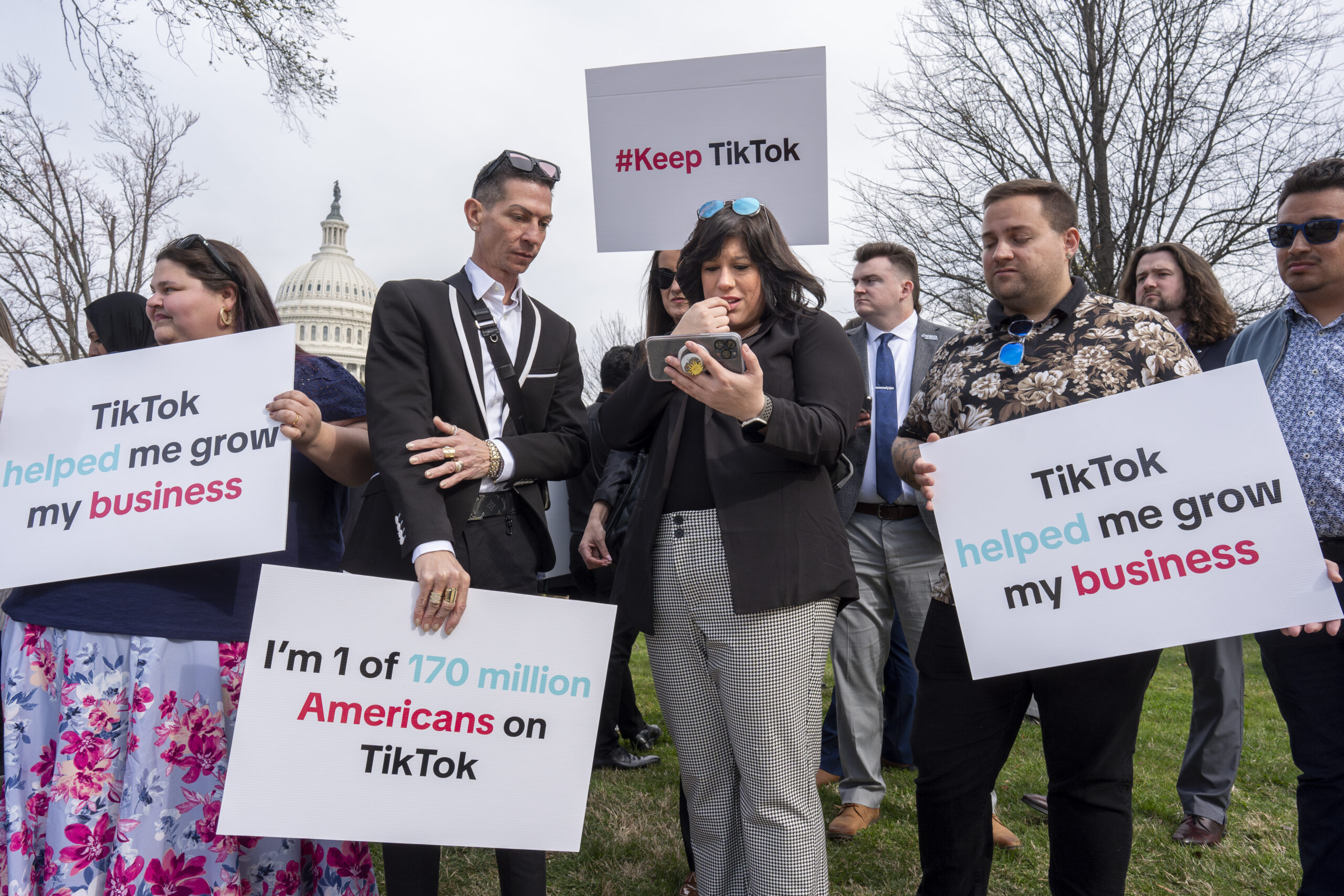
However, it’s essential to acknowledge the adaptability of social media platforms and social media users. We have experienced the death of beloved social media platforms before with Vine in 2016. On one hand, even though the loss of Vine proved to be extremely annoying, its departure paved the way for a new era of creativity and entertainment on platforms like TikTok. On the other hand, unlike TikTok’s monetization opportunities, Vine did not provide such revenue for smaller creators. So, unlike before, smaller creators and smaller businesses can indeed face challenges that were not previously present, even if they do move and attempt to expand on other platforms.
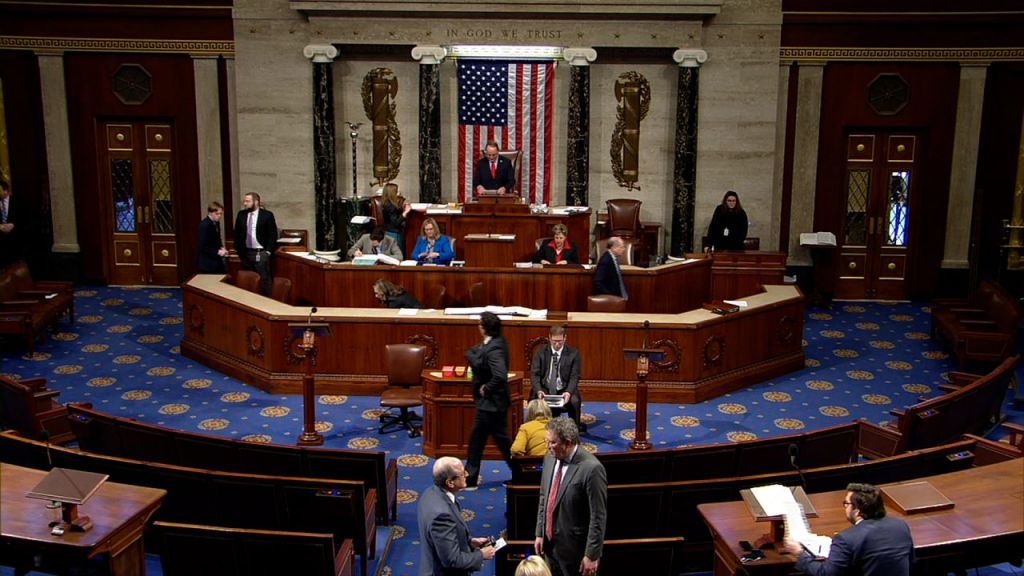
Just as Vine’s departure left a whole market waiting for its next new thing, this potential ban on TikTok could birth a new contender in the realm of short-form video content. We already know the ingredients to the success of TikTok- America loves short videos! If TikTok were to be banned, the demand for short-form videos would remain unchanged, creating a void that a new platform could satisfy. Platforms like Facebook, Instagram, and Snapchat have the resources and infrastructure to quickly pivot and capitalize on emerging trends. Instagram, for example, has already launched features like Reels to compete with TikTok, indicating a strategic interest in capturing the short-form video market. Reels could, in theory, become the next TikTok.
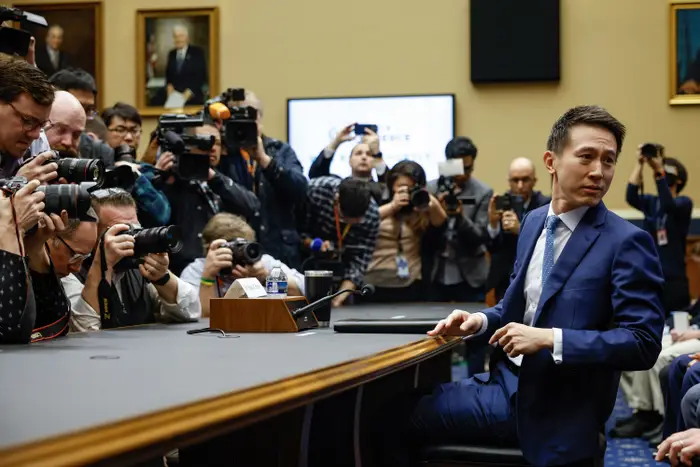
However, the next TikTok might not even exist yet. Entrepreneurs could be sitting on the next goldmine for social media platforms allowing either established creators or individuals new to the game to create the next big thing. The demand for short-term video content isn’t going away anytime soon, and where there’s demand, there’s opportunity. So, as discussions surrounding the fate of TikTok unfold, one thing is clear: if TikTok were to be banned, it would only be a matter of time before a new platform emerges to captivate audiences, inspire creators, and shape the future of digital culture, just as Vine did before it. While creators may encounter numerous challenges due to the potential ban (and it would be undoubtedly frustrating for users to lose TikTok), another social media platform could arise and potentially surpass its predecessor. The question then becomes, will another platform be able to replicate the algorithm and highly personalized feed that TikTok has built?

